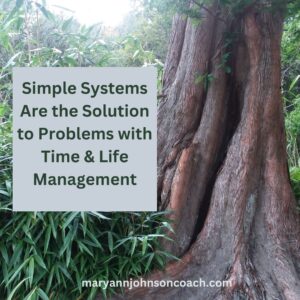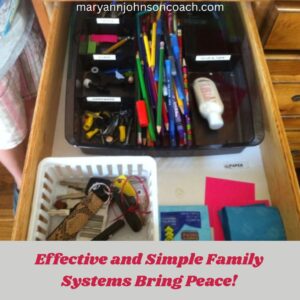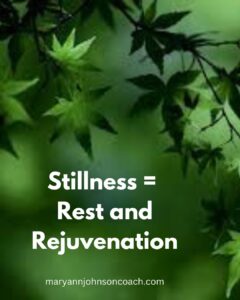This is my birthday article. : ) I turn seventy-five today, February 9th. This article was suggested by a dear friend and is, frankly, very vulnerable. I have pondered whether to publish it or not, whether it would be of value to anyone. However, it’s my birthday, and I can do what I want, right; even if it may be somewhat risky. 😊
Three days a week I walk with a couple of friends. We don’t always make it due to kids and school, but we’re very consistent. Two weeks ago, Livia and I walked on Tuesday; Alyshia was busy with kids. : ) We talked about many things. Our walks are always uplifting and lead to learning.
We discussed the interview Livia was doing that morning for her podcast LearnLiveFly. How she got the interview was amazing and no coincidence. She does two a month and is almost booked for 2025. We had an enlightening conversation about how she has managed that.
Towards the end of our walk, she asked me why Don’s surgery, scheduled for that Thursday, had been canceled. I explained and shared how challenging the reschedule was for me. Then the conversation took an interesting turn. Livia said, “You need to write about this.” I was taken aback by the comment. It had never occurred to me to write about where our surgery journey had taken me mentally. Livia added, “Many people find themselves in the same boat and it would be heartening,” or something to that effect.
I have pondered her advice and she may be right. It is an interesting story and what has come out of it for me has been helpful and will be even more useful in years to come, in other circumstances. It may be heartening and useful for you also. So here goes.
Let me begin by saying that death came early in my life and in a very hard way. My baby brother, the last of nine, was killed when a swing set fell on him. He was a little over six months old. I was the oldest and was supposed to be watching him, but I wasn’t there. I had passed him down to a younger sister so I could play tennis. She had passed him down to another younger sister and then that sister had passed him down to an even younger sister. Then the unthinkable happened.
I don’t need to tell you the impact on my seventeen-year-old soul. It was crushing and it was decades before I was able to let the quilt go. However, the trauma lingered. As others I loved died, my grandma, another brother, my father, etc., I decided that death had to be avoided.
But death is part of life and can’t be avoided so the story began to include the idea that it had to be prepared for! After my seventh child was born, I had an amazing spiritual experience with my youngest brother. It was healing and the trauma from that one experience was gone. However, my unrealistic story about death remained.
I had always worried I wouldn’t know how to manage when Don, my husband, passed away. Don was the first truly consistently safe place I ever had. I am sure he will go first, and I have been preparing for the inevitable since we married. You heard that right, since we married because of my story about death.
Over the years I asked dozens of widows how they managed. I wanted to know. I wanted to be prepared. I know this may sound silly to many, but I was determined to be ready. I have learned after losing many of those I loved, including a third brother, that death isn’t something you are ever truly prepared for. Because of this, I have had to rewrite this story about death, and it hasn’t been a simple process. Now, because of the upcoming surgeries, I must practice staying in control of the story daily.
FIRST SURGERY
Don has several surgeries coming up, prostrate, shoulder, hip, and then back. He’s going to be 76 and has numerous health issues. He isn’t the best surgery candidate, but he could live another ten years and some work must be done. The first was a prostrate procedure, very non-invasive, but needful. The one troubling thing was Don doesn’t do anesthesia well. It was scheduled for Dec. 13th. We showed up to surgery, waited five hours, and then were sent home because a machine was not functioning as it should. It was rescheduled for Dec. 26th, not cool, as he had to fast on Christmas Eve. : )
The hardest part about the postponement wasn’t giving up treats, it was having to face my story again for a few more weeks.
SECOND SURGERY
Don had a second surgery scheduled in late January. It was not a simple surgery like the first one. This was a complete reconstruction of his right shoulder. I found myself having the thought of him dying come into my head every day. I suspect this happened, despite the work I had done on my death story because in the last three years, I have watched three friends experience this very thing. Two were my age and one’s husband died unexpectedly in surgery and one in an accident. The other was far younger but with the same result.
When this worrisome thought would appear, I knew it wasn’t my thought. It wasn’t coming from me, so I wouldn’t entertain it. I took control. I decided I wouldn’t worry or stress about what hadn’t happened and might not happen. I knew that God was in charge and regardless of the outcome, he would help me, and I would be OK. I KNOW this from 75 years of experience. I know I can trust my Father in Heaven. So, I would tell the thought to ‘Hit the Road Jack’, words from a long-ago song, and it would recede for a time. Then we would repeat the process. I was able to remain at peace for the weeks leading up to the surgery.
The Sunday before Don’s January 23rd surgery he lost a metal crown. It was old. We knew this would impact surgery, so we made an appointment with the dentist to get a temporary cap, after calling the surgeon’s office for advice. The tooth was too decayed and could not be capped, it would need to be pulled. The dentist didn’t want to disturb anything so we left the tooth. The plan was to have a successful surgery and then pull the tooth two weeks later.
In the hospital the next day the surgeon came early, before they had Don hooked up to IVs, etc. This rarely happens. They usually come just before you’re wheeled into the operating room. He asked about the tooth. When he learned the tooth was decayed, not capped there was consternation. If the tooth had been pulled the day before we could have had surgery. But after a major surgery, you can’t have any work done in your mouth for 4 to 6 weeks. It’s one of the things that can cause the most inflammation and infection. He asked, “Do you think this old, decayed tooth will last that long and not cause you pain?”
It was an excruciating decision for both Don and me after managing the story for weeks. We almost decided to go ahead, but then made the wiser choice. The next day the old tooth came out and Don had two weeks to heal before surgery. I am back to managing my story.
MANAGE YOUR STORY AND LEAN INTO TRUST
Learning to manage our story is vital to living a happy and joy-filled life. I have been taking control of my stories for almost two decades and I am good at it, but it still takes intention and practice. In this case, I am choosing not to worry about what may not happen and trust that I will be guided through what does happen. I feel at peace. I am leaning into trust. I know that I can’t be prepared for everything but I can trust that everything will turn out as it should and I will manage what is. The surgery will be on Tuesday. Can you see how this is impacting me for good?
It takes energy to do this work day after day, and cancelations extend the work. But we must learn to lean into trust. I have experienced over a long lifetime to trust that I will be watched over, cared for, and that no matter the outcome in any given situation, I will have someone to walk through it with me. My job is to manage the story, remain in control of the facts and my thoughts about them, and lean into trust.
In this case, the person walking with me is God. In a different circumstance, it might be my husband or one of my children, a friend, a coach, etc. It could be a counselor, a circumstance, or myself. There are many ways and times that we must intentionally choose to trust that we will be ok when we aren’t sure what is coming or the outcome. Spouses leave. Children stray. Jobs are lost. Illness happens. Moves are forced. Natural disasters occur. Death comes.
I’ve been emptying a box of cards and letters I saved for Don for the 57 years we have known each other. He’s been rereading the beautiful things people have said over the years. This sentence was in a card I gave him years ago, “I am sure that as long as you are with me, in body or spirit, I will be able to breathe and manage my days.” I have grown and healed. I am managing this old story about death, but I see from this comment to my husband that I have been working on this for many decades. We will manage these upcoming surgeries as we lean into trust, no matter the outcome of each one.
- Know that you can and should take charge of your story
- Be intentional
- Be willing to work on it as long as it takes or as often as you must
- Find someone you trust and can depend on to help you
- Believe that even if you don’t know what is going to happen you are not alone
- Trust yourself that you can manage and will be OK
- Lean into trust
If you are facing something difficult with an uncertain outcome, find a way to lean into trust and you will be OK.
 How Can You Remind Yourself to Care for Self?
How Can You Remind Yourself to Care for Self?


 I have had this recurring thought in the last five years – “Why are you writing? You aren’t raising kids anymore. You aren’t homeschooling. You’re getting older. Are you even relevant?” Then I get an email from a young mom thanking me for helping her see what she couldn’t see, or from an older mother or grandmother thanking me for reminding her of what she already knew.
I have had this recurring thought in the last five years – “Why are you writing? You aren’t raising kids anymore. You aren’t homeschooling. You’re getting older. Are you even relevant?” Then I get an email from a young mom thanking me for helping her see what she couldn’t see, or from an older mother or grandmother thanking me for reminding her of what she already knew.
 I have the opportunity to talk with women of different ages about many things. It’s one of the perks of my life. This summer, I am sharing ‘A Series of Conversations’ – Articles that have come out of conversations with friends. I’m sure they will be what someone needs to hear, as they have been for me.
I have the opportunity to talk with women of different ages about many things. It’s one of the perks of my life. This summer, I am sharing ‘A Series of Conversations’ – Articles that have come out of conversations with friends. I’m sure they will be what someone needs to hear, as they have been for me. was a bright blue patch, surrounded by clouds, in the shape of a heart. I couldn’t pull over to take a photo, but I had seen it. It had been one of those busy, chaotic mornings, and seeing the heart helped me breathe and smile.
was a bright blue patch, surrounded by clouds, in the shape of a heart. I couldn’t pull over to take a photo, but I had seen it. It had been one of those busy, chaotic mornings, and seeing the heart helped me breathe and smile.
 Two weeks ago, in the article
Two weeks ago, in the article For example, when my 3-year-old grandson was being a pill, his mom would stop, get down to his level, and say, “What’s wrong, little son?” When I watched her, I knew she was ticked off, but
For example, when my 3-year-old grandson was being a pill, his mom would stop, get down to his level, and say, “What’s wrong, little son?” When I watched her, I knew she was ticked off, but 
 This week, as I walked with my friends Livia and Alysia, the conversation turned to their teens and the issues surrounding accomplishing things at home. At one point, Livia mentioned the need for successful systems. I told them how interesting the conversation was because I was working on my article for today, and it was about creating
This week, as I walked with my friends Livia and Alysia, the conversation turned to their teens and the issues surrounding accomplishing things at home. At one point, Livia mentioned the need for successful systems. I told them how interesting the conversation was because I was working on my article for today, and it was about creating 
 This week, I began cleaning the top shelves that encircle my living room and the two bedrooms. It’s a big job, requires a ladder, and the accumulated dust is incredible. I only do this once a year.
This week, I began cleaning the top shelves that encircle my living room and the two bedrooms. It’s a big job, requires a ladder, and the accumulated dust is incredible. I only do this once a year.
 One evening, my husband Don was watching Sci-Fi on TV. I was cooking and could hear it. A man said to a woman, “To heal your wounds, you must see the past clearly.”
One evening, my husband Don was watching Sci-Fi on TV. I was cooking and could hear it. A man said to a woman, “To heal your wounds, you must see the past clearly.” where I live in our four-generation home, for over a year. It’s been nice to have his presence and help. We have all benefited, including Seth. His reason for coming here, from Montana, which he loves, was to take a series of classes to help him do some healing work. You see, no one’s past is trauma-free. It is the bag thing. : )
where I live in our four-generation home, for over a year. It’s been nice to have his presence and help. We have all benefited, including Seth. His reason for coming here, from Montana, which he loves, was to take a series of classes to help him do some healing work. You see, no one’s past is trauma-free. It is the bag thing. : )
 I’ve written many articles on the importance of making sure the story we tell ourselves is helpful to our sense of well-being, healthy relationships, and happiness. How we perceive something matters.
I’ve written many articles on the importance of making sure the story we tell ourselves is helpful to our sense of well-being, healthy relationships, and happiness. How we perceive something matters.
 My husband was watching the show The Irrational. It’s about a behavioral science professor who solves tough police cases. I was in the kitchen and could hear it. The main character had an appendix surgery. He tried to rise from his bed a few times because there was a case he wanted to get going on. His sister had to nag at him to remain in bed and heal. At one point the professor spoke with a priest, while still in the hospital. The priest said, “St. Stillness has visited you.” Then he smiled and the professor replied, “Oh, stillness. I’m not very good at it.”
My husband was watching the show The Irrational. It’s about a behavioral science professor who solves tough police cases. I was in the kitchen and could hear it. The main character had an appendix surgery. He tried to rise from his bed a few times because there was a case he wanted to get going on. His sister had to nag at him to remain in bed and heal. At one point the professor spoke with a priest, while still in the hospital. The priest said, “St. Stillness has visited you.” Then he smiled and the professor replied, “Oh, stillness. I’m not very good at it.”